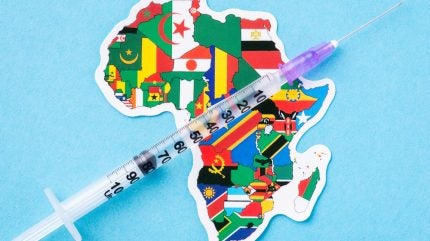
African nations are preparing to transition towards greater financial independence in developing healthcare infrastructure, as international aid declines, according to World Health Organization (WHO) director-general Dr Tedros Adhanom Ghebreyesus.
Speaking at the ongoing Sixth World Conference of Speakers of Parliament in Geneva, Ghebreyesus said the WHO is committed to making the transition happen amid a sharp cut in international aid by the US.

Discover B2B Marketing That Performs
Combine business intelligence and editorial excellence to reach engaged professionals across 36 leading media platforms.
The WHO director-general said: “Many leaders from the developing countries, including from Africa, have told me that they see this crisis as an opportunity to leave behind the era of aid dependency and transition to sustainable self-reliance.”
The remarks consolidate earlier statements by African officials earlier this year to move towards internal funding. In March, South Africa’s deputy president said the US aid cuts were a “wake-up call” for Africa to develop sustainable healthcare solutions. The African Centres for Disease Control and Prevention (CDC) launched a continent-wide strategy in April to change how health systems are financed. Outside of Africa, Indonesia is aiming to be self-sufficient in vaccine production by 2037.
Ghebreyesus said that WHO was committed to helping countries make this transition happen, offering to identify tools to improve efficiency and generate new revenues for health from domestic sources.
One policy being pushed by the organisation is to raise taxes on alcohol and tobacco and introduce duties on the products in countries where taxes are not currently in place. WHO reckons the initiative could raise $1tn over the next ten years.

US Tariffs are shifting - will you react or anticipate?
Don’t let policy changes catch you off guard. Stay proactive with real-time data and expert analysis.
By GlobalDataAround $68bn was spent by the US on international aid in 2023, with USAID accounting for approximately $40bn of that total. Ukraine is currently the top beneficiary, receiving $6.1bn in 2024, according to official US Government data.
A large proportion of USAID’s money is spent on sub-Saharan Africa, Asia, and Europe. However, US President Donald Trump has retracted much of the funding sent overseas and redirected it domestically. HIV prevention and treatment in Africa have been particularly affected by the cuts while the WHO said that shortfalls in global funding have also reversed decades of tuberculosis progress.
Ghebreyesus declared at the conference: “Around the world, dramatic reductions in aid are having serious impacts on health services in many developing countries. We see disruptions affecting millions of people who are missing out on life-saving services and medicines, including vaccines. Healthcare facilities are being forced to close. Supply chains and information systems are disrupted.”
The WHO itself is grappling with funding gaps. Trump is withdrawing the US – historically its largest contributor – from the organisation’s membership. In response, other member countries have agreed to pay 20% more in membership fees as part of a revamped budget.
Ghebreyesus added: “WHO has also been affected by cuts in aid by the US and other countries. At the same time, in every crisis, there is an opportunity. I’m confident that WHO will emerge from this situation stronger, sharper, and more focused on our core mandate. More impact to serve the nations and people of the world. And we’re making the restructuring and change.”




